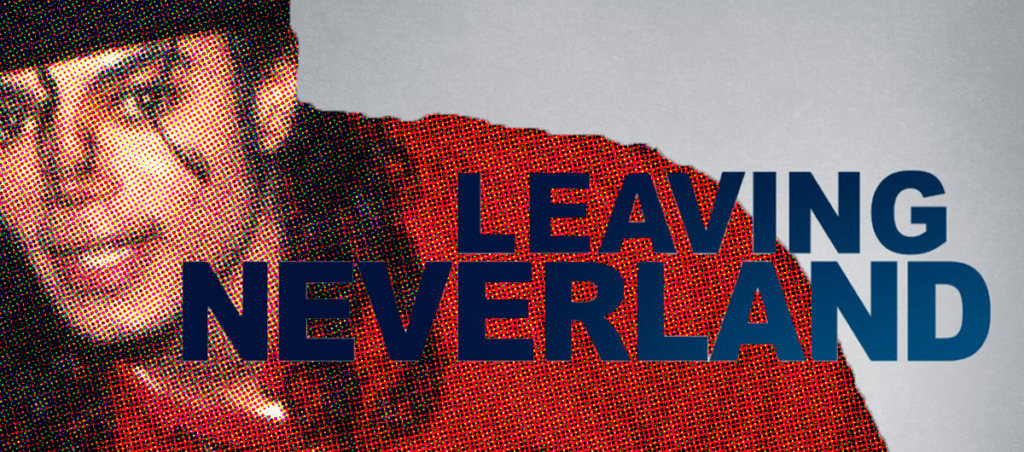A childhood sexual-abuse survivor explains the emotional minefield of defending their adult abusers, especially the most charismatic, powerful, and public among them.
This article was made possible because of the generous support of DAME members. We urgently need your help to keep publishing. Will you contribute just $5 a month to support our journalism?
I have a good friend from elementary school who has teased me throughout the years for that time I used to “make out” with a Michael Jackson Thriller-era photo I tore out of a magazine. I was about 12 at the time, so the crush made sense, and it’s just a hint at how embedded Michael was in the fabric of my childhood. At the same time that I was crushing on Michael, pressing my warm lips to his glossy paper ones, I was being sexually groomed by the charismatic pastor who ruled everything about the Pentecostal church I grew up in, and hence was my world. Over the next six years, he would have me at his beck and call, in the same building that he preached in, which was often filled with congregants and both our family members at the time, sometimes only a room or two away.
In the ensuing 34 years, I’ve done the hard work of coming to terms with it. Calling it abuse and not a relationship between a 12-year-old and a 53-year-old. Digging out of the chaos of my inner turmoil to create a life full of hope and possibility. During that same time, I, like so many of us, also wrestled with the rumors and accusations of behavior from my musical favorite that ranged from odd to potentially criminal. And I was only too happy to assuage my unease with MJ’s legal acquittal and the vehement anecdotal defenses from friends and family. His musical legacy was still something I wanted to maintain.
But ever since reports started coming out of Sundance this past January about the awful and graphic accusations made by Wade Robson and James Safechuck in the Leaving Neverland documentary (now playing on HBO), I knew we were going to have another public moment around the icon, ten years after his death. I won’t tell anyone else how to feel about the doc, or make my plea on where to land on the art-versus-the-artist debate (someone’s already handled that far more skillfully than I could), but I must challenge a loathsome idea I’ve seen on social media this week. It’s the gleeful pointing by some, in their rabid defense against what they see as an assault on Michael’s legacy, to highlight how Robson and Safechuck continued to defend Michael and sought to be around him as teens and twentysomethings.
“Look! See!” they shout. “There he is at the 1995 trial defending Michael. There he is still hanging around him as a teenager.” “This is clearly about money right now.”
What many don’t understand is how much childhood sexual abuse, especially with a magnetic personality, doesn’t feel like abuse. It feels like love. A love that feels intimate and unique. And for a very long time, the instinct to protect your abuser and maintain the illusion of whatever you thought was special in that relationship is overwhelming. It’s no coincidence that Robson and Safechuck use terms like “in love” and “best friend” when describing the man they allege molested them when they were just 7 and 10. Recognition of what’s happened doesn’t change feelings of love to hate. It just makes everything confusing.
In a Refinery29 article last week, Kristen Houser, chief public affairs officer of the National Sexual Violence Resource Center, affirmed this distressing dynamic for survivors of childhood sexual abuse. “It’s very hard for young people, even young adults, to take the risk of losing all the good stuff, and withstanding the public criticism that often comes when there’s a high-profile case,” Houser explains. “So they do what they know best, which is to keep up the story.”
I did the same thing. When my pastor was on trial for raping two women in my church, I was there at the courthouse, as a 16-year-old, with a group of church members, silently supporting him. Even though I knew the youngest girl and had no reason to think she’d lie. Even though I knew the accusations were eerily similar to what I’d experienced. But I was special. He’d said so, whispering it in my ear many, many times. And I had to protect him. Plus there was no way I could have stood up to the victim-blaming those women endured on the stand and within the church. It would be a decade after I left the church before I called it abuse. I haven’t even felt free to talk about this publicly until he died two years ago. And I defy anyone to question my motives for telling my truth now.
Yes, my background means I will always believe survivors speaking their truths, until proven otherwise. But everyone must acknowledge the complicated nature of these truths, as well as the fact that the cost of coming out with this kind of accusation publicly is often too great for it to be a lie. The potential money grab that naysayers point to (such as pending lawsuits) is hardly enough of a reason to take on the public scrutiny and shaming, or to weather an emotional storm that threatens any stability and recovery you’ve fought to gain. It is not the image of MJ that millions of fans want to have but it is these men’s truths.
So for me, these men’s previous defenses of Michael is not proof of their wrongdoing. It is actually confirmation of the narrative I know to be true. It takes a long time to own the totality of our stories and it’s on a different schedule for everyone. Believe survivors … whenever we feel strong enough and ready to share our truths.
